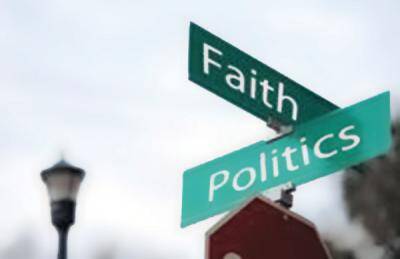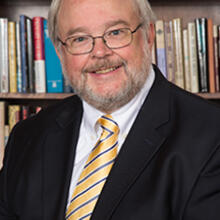As this is written, the Iowa caucuses are finally moving the presidential campaign into the hands, heads and hearts of voters. Pundits who have been consistently wrong are offering new explanations and projections. Here is a crazy prediction for a crazy campaign. A Republican demolition derby yields a brokered convention, and a Democratic meltdown from an indicted or severely damaged front runner leads to a Paul Ryan-vs.-Joe Biden race in the fall. Far more likely, voters will have to choose from the candidates we have.
They offer polarizing appeals to a polarized nation. Leading Republicans blame foreigners and President Obama for all our troubles. Democrats blame billionaires and embrace Planned Parenthood. (What happened to safe, legal and rare?) Reagan’s optimism and Bush’s “compassionate conservatism” have been replaced by dark visions of “a crippled America” and a search for scapegoats. Obama’s “hope and change” have been overtaken by Democratic frustration that there is too little change and not enough hope. The Republican campaign is driven by anger, insisting, “We want our country back.” Democrats are also mad: “We want the economy back.” There is a difference. The rich can defend themselves, but immigrants cannot.
In “Forming Consciences for Faithful Citizenship,” the U.S. Catholic bishops lift up moral issues of human life and dignity, justice and peace, immigration and religious freedom. But they also outline other crucial moral criteria: “These decisions [on voting] should take into account a candidate’s commitments, character, integrity, and ability to influence a given issue.”
Questions of character haunt the campaigns of leading candidates. We hear Donald Trump is “a jerk” and a “narcissist,” talking constantly about himself, his polls and “stupid” leaders. He first challenged Mr. Obama’s citizenship and now Mr. Cruz’s. Ted Cruz is called a “nasty guy…a maniac,” and he “will say or do anything to get votes.” Marco Rubio is attacked as an inexperienced “opportunist” who “cut and ran” from immigration reform when the politics changed. These indictments are assessments by Republicans, not Democrats.
A voter asks Hillary Clinton on CNN why young people think she is “dishonest.” They are not alone. More than 60 percent tell pollsters she is neither honest nor trustworthy as they consider her private email arrangement and roles in past Clinton controversies and scandals. Will another Clinton administration be consumed by sideshows and scandals because of the Clintons’ behaviors and judgments as well as the excesses and obsessions of their adversaries?
A Trump administration might make a Clinton administration look tame if he brings his bravado, arrogance, disdain for others and impulsive actions to the White House. Crude attacks on women, demonizing immigrants and refugees and making fun of persons with disabilities are not offenses against political correctness but signs of disrespect for the dignity of all.
The disrespect and hostility toward Ted Cruz from colleagues reminds me of a Mark Shields story: Newt Gingrich asked, “Why do people take an instant dislike to me?” and Bob Dole allegedly responded, “It saves them time.” Beyond his harsh policy positions, Mr. Cruz’s self-righteousness, confusion of ends and means and inability to work with others are not simply personal flaws but raise questions of character and capacity to lead.
How did we get to this place, where three candidates for president who draw the most support for their other qualities and positions are also widely seen as untrustworthy, narcissistic or insufferable? What does this say about our society, culture, media and politics?
There are other candidates and questions. What values, beyond a passion against inequality, would Bernie Sanders bring to the White House? Who is Marco Rubio? An optimistic son of immigrants campaigning to extend the American dream or a pessimistic culture warrior complaining, “I don’t recognize America”?
Voters face major moral questions of life and death, war and peace, and who moves ahead and who gets left behind. We also face fundamental choices about who has the character, integrity and capacity to lead our nation…and who does not.








